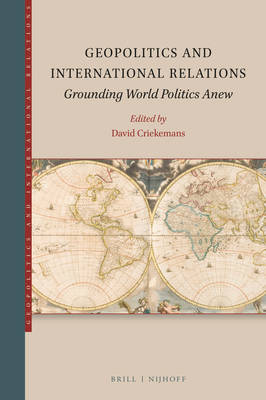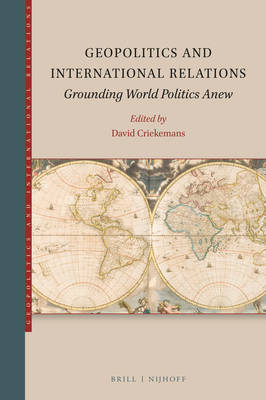
- Afhalen na 1 uur in een winkel met voorraad
- Gratis thuislevering in België vanaf € 30
- Ruim aanbod met 7 miljoen producten
- Afhalen na 1 uur in een winkel met voorraad
- Gratis thuislevering in België vanaf € 30
- Ruim aanbod met 7 miljoen producten
Zoeken
€ 62,00
+ 124 punten
Omschrijving
Although we live in a globalised world, territorially embedded factors are highly relevant in such domains as security, economy, energy, environment, politics & diplomacy. Today's analysts of world affairs are often loosely referring to 'geopolitics', but do not always clearly define it. This book therefore offers a necessary framework: an introduction into the main components of geopolitical analysis, an overview of the main geopolitical schools of thought, as well as reflections on how technology and geopolitics affect each other in economy, energy and security. In addition, several empirical studies are showcased, each developing innovative approaches. Leading authors reflect upon containment, analyse geopolitical myths, research geoeconomic rivalries, study mental maps, analyse conflict through territorially embedded variables & greed motivations and apply 'neo-medievalism' to study sub-state diplomacy.
Contributors include: David Criekemans, Gyula Csurgai, Luis da Vinha, Manuel Duran, Alexandre Lambert, Antonios Nestoras, and Steven Spittaels.
Contributors include: David Criekemans, Gyula Csurgai, Luis da Vinha, Manuel Duran, Alexandre Lambert, Antonios Nestoras, and Steven Spittaels.
Specificaties
Betrokkenen
- Auteur(s):
- Uitgeverij:
Inhoud
- Aantal bladzijden:
- 408
- Taal:
- Engels
- Reeks:
- Reeksnummer:
- nr. 1
Eigenschappen
- Productcode (EAN):
- 9789004548565
- Verschijningsdatum:
- 30/03/2023
- Uitvoering:
- Paperback
- Formaat:
- Trade paperback (VS)
- Afmetingen:
- 155 mm x 234 mm
- Gewicht:
- 562 g

Alleen bij Standaard Boekhandel
+ 124 punten op je klantenkaart van Standaard Boekhandel
Beoordelingen
We publiceren alleen reviews die voldoen aan de voorwaarden voor reviews. Bekijk onze voorwaarden voor reviews.








